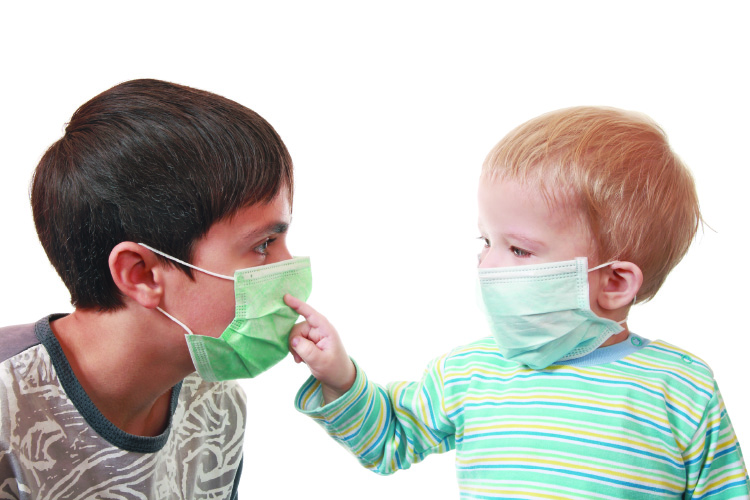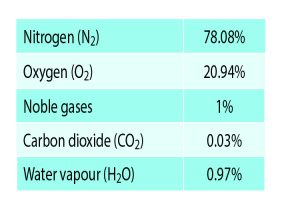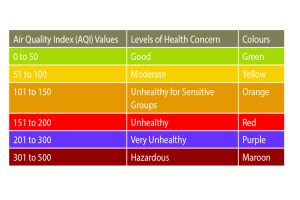Table of Contents
Breathing – Your basic need
Obviously, there are three basic needs for survival; food, water, and air. We buy food for a price and hence, it’s not free. We pay our water bills, buy bottled water for drinking, and hence it’s not free, either. What about air? Air is foremost for our survival needs. Do we pay a price for the air that we breathe? One can survive without food for a few weeks; a few days without water, but not even a few minutes without breath.
And yes, to survive, we need to breathe continuously, from birth to death. A healthy adult breathes about 15 to 16 times a minute. In an hour, each of us breathes almost 900 times. Our lungs pump for some 21,600 times a day.
Breathing is a sensitive activity that goes on even when we sleep. It’s an involuntary process. We breathe without a pause, and are only alerted when something interrupts our breathing. It is not normal and irregular when we release bouts of coughs and choke while breathing. We can’t afford to wait even for a second when there is trouble in our breathing. Without breath, it’s like being at the brink of death; only those who had experienced it know the terrible feeling.
How much air do we breathe?
In terms of volume, each of us breathes about 7 to 8 litres of air every minute. To make it simple, the amount of air a person breathes every minute can fill one-third a cubic foot of a small box. The total volume of air each of us breathes in a day is more or less 11,000 litres and this air is enough to occupy a small bedroom.
Why do we need to breathe?
By nature, every human needs oxygen. Oxygen is our life-gas. Our body, brain, blood and tissues constantly and continuously need oxygen. Our brain will die without oxygen even for a few minutes.
One third of air contains oxygen. Oxygen transfuses with blood by a process called gaseous exchange. The blood carries the oxygen through blood vessels to all parts of the body converting it into energy without which we cannot do any activity. We need energy even to sleep or watch TV.
The Oxygen need
According to a rough calculation, the entire population of the earth needs oxygen worth of US$38 trillion for six months. Besides your life, breathing is expensive too! Imagine how much worth of oxygen each of us consumes in a day? Do we pay for it? Do we appreciate the trees for supplying us with free oxygen?
Air
Air is a mixture of certain natural gases. The table below shows the gases found in the air:
Clean air
Clean air is what we all desire to have, which can be identified by some simple characteristics. The air is fresh. We can smell the freshness in the air. It’s breezy and light. We feel comfortable to breathe in. No water droplets or dust particles float in clean air.
Dirty air
Dirty air is heavy. We feel something heavy in the chest when we breathe in dirty air. There is a foul or chemical smell. The air is mostly motionless. It makes the sun dull and bland. The sky looks hazy or smoky even. Some sensitive people will feel uneasy or difficult to breathe. This is polluted air. The level of pollution cannot be decided by simply breathing, smelling or sensing polluted air around us. The quality of air needs to be determined by lab experiments. The condition or level of pollution is called Air Quality. The variance of air quality is called the Air Quality Index, in short AQI. In some countries, it’s also called API (Air Pollution Index).
Air Quality Index
Following is a specimen AQI from Urban Environmental Program followed in the United States. However, different countries follow different colour codes to suit their region:
The index can be obtained or found in weather bulletin issued by the local weather office. The warning is given in the middle of the columns.
Who pollutes our air?
There are two sources of pollution. One is natural – caused by erupting volcanoes belching huge smoke balls loaded with ashes. Forest fire is another major cause that loads tons of carbon gases into the sky.
The other sources of pollution originate from human activities. The range of pollution is too wide to name. Among them, the major sources are electricity generation, automobiles and cooking activities using LPG.
Power generation
There are more than 70,000 power plants in the world, with many of them generating electricity using coal/gas. They run continuously to supply power grid for different needs. In 2006 alone, the world used up 9.98 short tons of coal for power generation. Each kWh consumption of power releases 1 kg of carbon dioxide. Imagine how much carbon dioxide is loaded into the sky each year.
Automobiles
The lightweight vehicle population of the world, according to a recent data is 700 million. More or less 3,000 cars are landing on the roads every year. Each car runs an average of 15,000 km a year. Automobiles alone load up some 25 bil tons of co2 into the air each year.
Households
The current world population stands at 6.4 billion. The population increases by 80 million a year. Using LPG is the source of fuel for cooking for all except a tiny part of the population. Each kilogram of LPG releases about 3 kg of carbon dioxide. Imagine the total load of co2 sent into the atmosphere.
Other sources of pollution
Agro industries, livestock, poultry, landfills and industrial activities are other sources of air pollution. They continuously emit mild to severe noxious gases into the air. The pollutants from all such sources make our sky filthy. It chokes all living things, including humans.
What are the impacts of air pollution?
The impacts are tangible.
• More babies tend to get asthma, a condition that affects the respiration system.
• Wheezing and coughing continue for some sensitive individuals.
• Senior citizens and young babies become vulnerable by polluted air.
• Some people even get throat and nasal irritation with blown-out tissue liners.
• Pollutants enter into human body through food chain, eventually causing short term to long term health issues. The tiny dust particles settle in vital organs blocking proper functions.
• Acid rain (raindrops that turn acidic in reaction with the acid gases floating in the air) destroys flora and fauna.
• Fertile soil is acidified rendering poor or no yield.
How we can help to reduce air pollution?
Start with your car
• Try to reduce driving. Walk to the corner shop. Make one day of the week as non-driving day. Inflate the right amount of air for the wheels. Drive at optimum speed. Tune the engine to give you the right performance. Use public bus or LRT at least once a week. One public bus saves the emission of 60 cars.
You can do more:
- Be stringent in using electricity
- Avoid wastage
- Turn off TV and lights when not in use
- Adjust your air-cond thermostat to eco-friendly level
- Wait for full load when operating your washing machine
- Use eco-friendly light bulbs
- Do not practice open burning
- Apply the five Rs (Recycle, Reduce, Reuse, Repair and Rethink)
- Look out for green labels when you shop
- Never let your computers on from morning through evening. Hibernate or turn it off as and when required
- Buy energy efficient machines and tools. Look for the energy star logo
- Eat local food
- Avoid processed food as much as possible
Don’t for once think to yourself, ‘After all what I alone could achieve in a big world of billions of people?’ Do your part. Many people are doing their parts to reduce pollution, and many are watching you to follow your steps. They silently appreciate you.


















